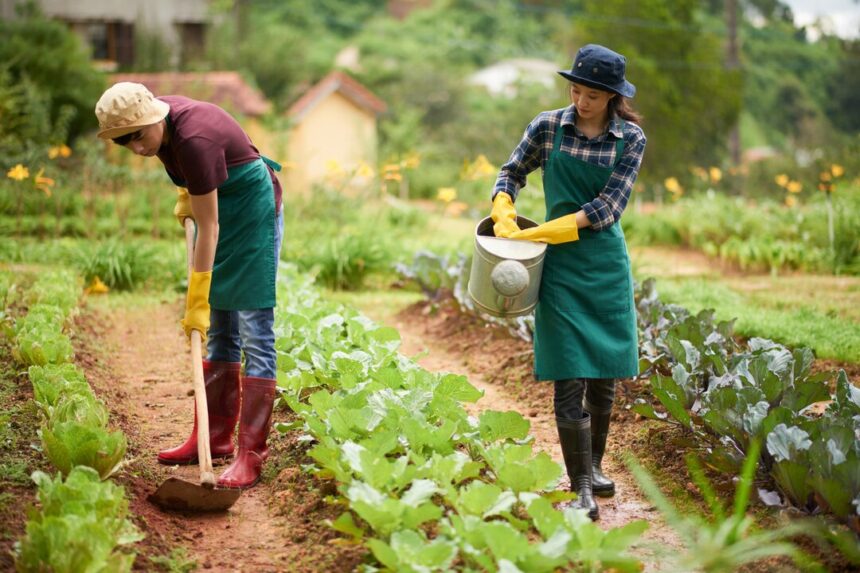Backyard farming is an excellent way for South African households to produce fresh food, save money, and promote sustainability. Whether it involves growing vegetables, raising chickens, or cultivating fruit trees, backyard farming offers immense benefits. However, many beginners face challenges due to common mistakes that hinder productivity and efficiency. Avoiding these pitfalls can help maximize the potential of your backyard farm.
1. Failing to Plan Properly
A common mistake is starting backyard farming without a clear plan. Farmers often underestimate space, resource requirements, or the time needed for maintenance. Before starting, decide what you want to grow or raise, sketch a layout, and allocate space wisely. Plan your planting or rearing schedule based on the seasons and the specific needs of your crops or livestock.
2. Overlooking Soil Quality
Soil is the foundation of any successful backyard farm, yet many farmers neglect to test or improve it. Poor soil can lead to weak plants and low yields. Conduct a soil test to check for nutrient deficiencies and pH levels. Use organic compost or manure to enrich the soil and maintain its fertility over time.
3. Growing Too Many Crops
While variety is beneficial, trying to grow too many crops at once can overwhelm backyard farmers. Overcrowding leads to competition for sunlight, water, and nutrients, resulting in poor yields. Start with a few easy-to-grow crops, such as spinach, tomatoes, or green beans, and expand gradually as you gain experience.
4. Neglecting Water Management
Overwatering and underwatering are two of the most frequent mistakes in backyard farming. Overwatering can cause root rot, while underwatering stresses plants, reducing their productivity. Install a simple irrigation system, such as drip irrigation, or use rainwater harvesting techniques to ensure efficient water use. Monitor soil moisture regularly to avoid wastage and ensure optimal hydration.
5. Ignoring Pest and Disease Control
Backyard farmers often underestimate the threat of pests and diseases, assuming their small-scale operations won’t be affected. Neglecting pest control can lead to infestations that damage crops or harm livestock. Use natural pest control methods like neem oil, companion planting, or introducing beneficial insects. For livestock, ensure proper hygiene and vaccination to prevent diseases.
6. Choosing the Wrong Crops or Livestock
Many backyard farmers select crops or animals unsuited to their local climate, space, or resources. For instance, planting tropical fruits in cold areas or raising large livestock in small spaces leads to poor outcomes. Research and choose crops and animals that thrive in your region’s climate and fit within your available space.
7. Poor Space Utilization
Backyard farmers often fail to utilize vertical space or innovative designs, leaving valuable areas unused. Incorporate vertical gardening, trellises, or hanging planters to make the most of limited space. Additionally, use crop rotation and intercropping techniques to maximize soil health and productivity.
8. Overlooking Composting and Waste Management
Many backyard farmers do not take advantage of organic waste generated from their farms or households. This waste can be turned into nutrient-rich compost to improve soil fertility. Set up a compost bin for kitchen scraps, garden trimmings, and livestock manure to create a sustainable waste management system.
9. Lack of Regular Maintenance
Backyard farming requires consistent care, but many farmers neglect tasks like weeding, pruning, or cleaning livestock enclosures. This can lead to pest infestations, diseases, or reduced yields. Dedicate time each week to maintenance tasks, such as removing weeds, checking for pests, and cleaning tools and equipment.
10. Unrealistic Expectations
Backyard farming is rewarding, but results take time and effort. Many beginners expect immediate success or large yields and become discouraged when things don’t go as planned. Start small, set realistic goals, and learn from mistakes. Celebrate small wins, such as your first harvest, and build on those achievements.
Backyard farming can transform small spaces into productive, sustainable food sources, but success requires careful planning and consistent effort. By avoiding these common mistakes, South African farmers can optimize their backyard farms, reduce costs, and contribute to food security. With proper soil management, water conservation, pest control, and realistic expectations, you can turn your backyard into a thriving, rewarding space for farming. Whether you’re growing vegetables, raising chickens, or starting a compost system, the key is to stay informed, adaptable, and patient.
Join 'Farmers Mag' WhatsApp Channel
Get the latest Farming news and tips delivered straight to your WhatsApp
CLICK HERE TO JOIN






